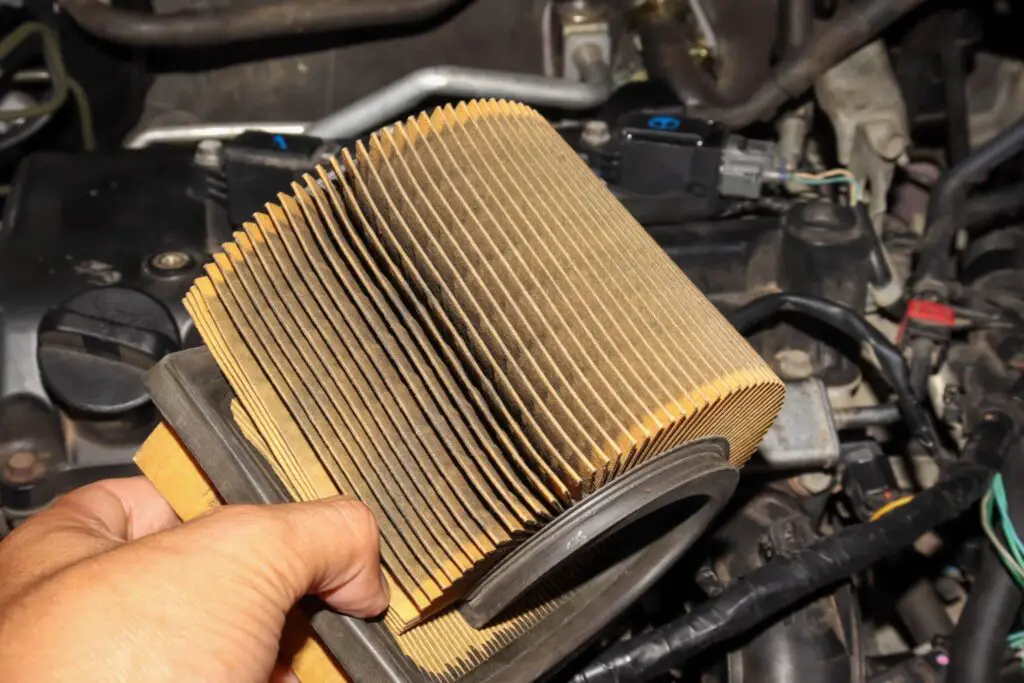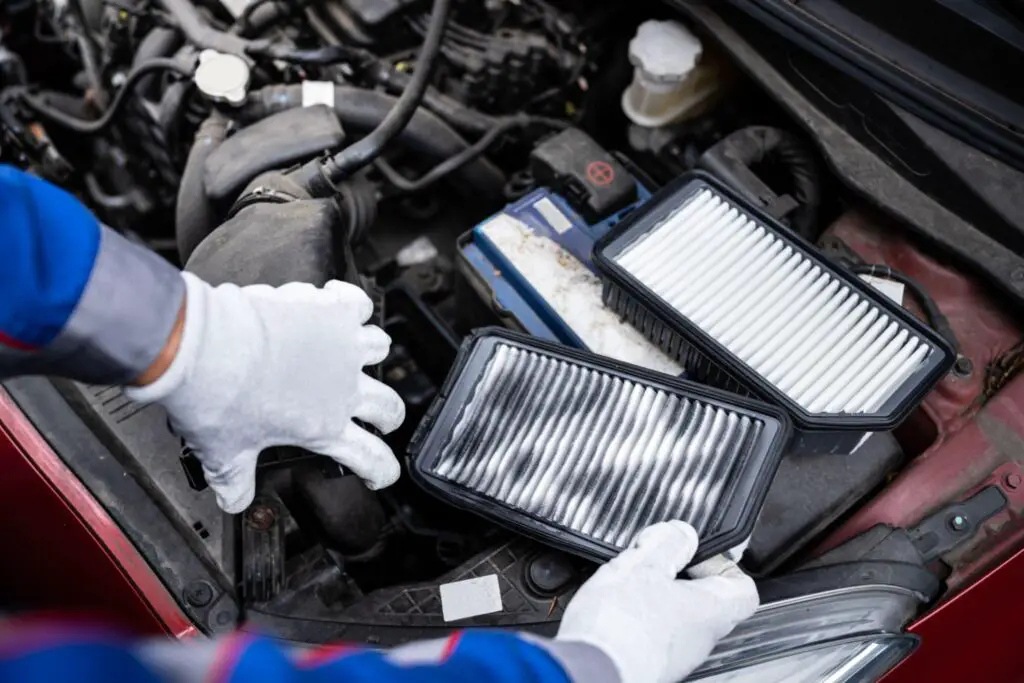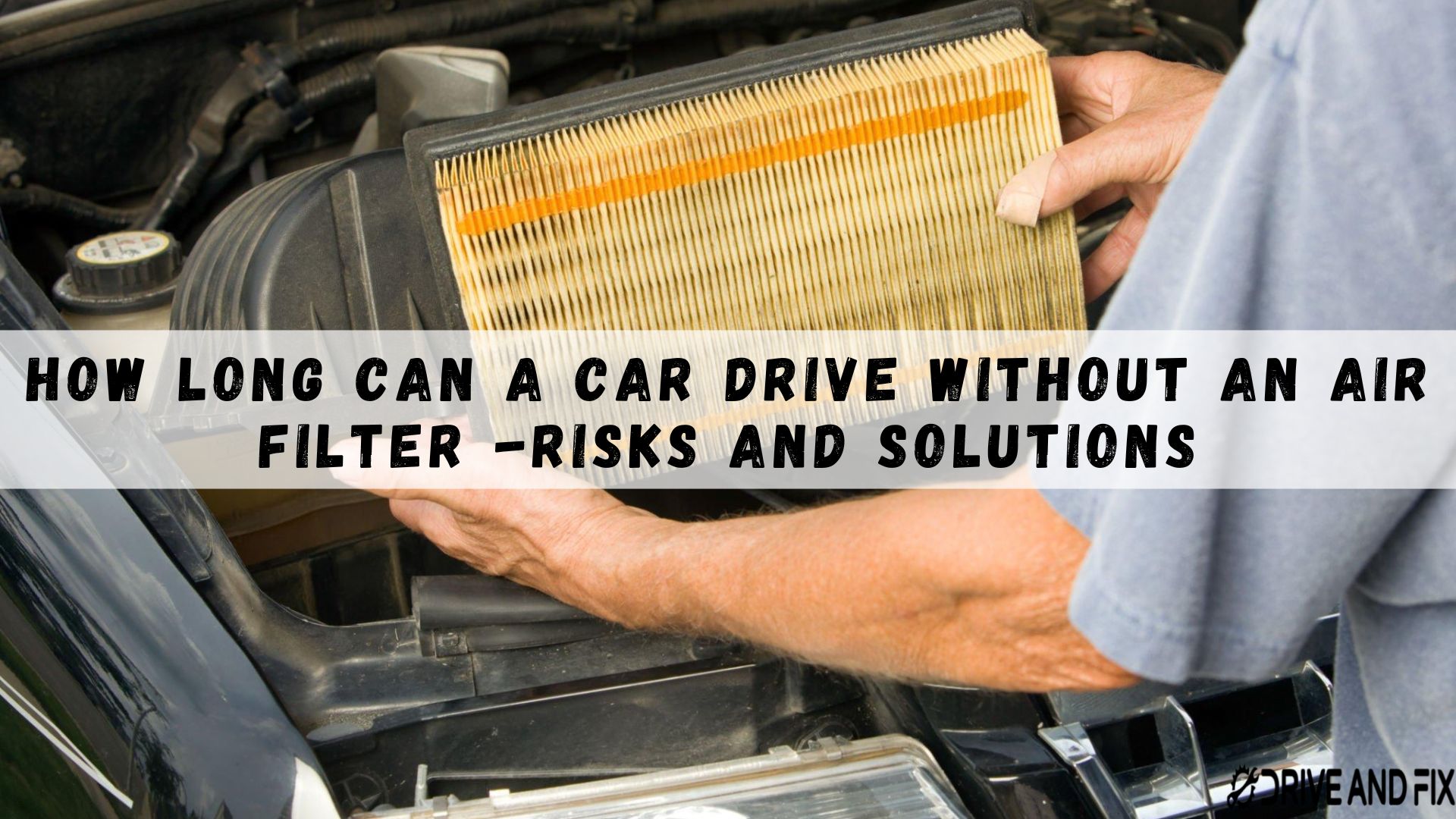An air filter is one of the most critical components of a car’s engine system, yet it’s often overlooked until it’s too late. This small but mighty piece of equipment is crucial to keeping a vehicle running smoothly and protecting the engine from damage. But what happens if a car hits the road without an air filter? How long can a car drive without an air filter?
We’ll discuss the impact of driving without an air filter and what can be done to minimize the risks. So, buckle up, and let’s start an exciting journey to uncover the mysteries of air filters and their impact on car performance!
Why Your Car Needs An Air Filter
The function of an air filter in a car is to clean the air that enters the engine. The component is set to remove dirt, dust, and other contaminants from the air before it enters the engine. That is key because these contaminants can cause damage to the engine’s internal components, such as cylinders and pistons.
An air filter works by trapping contaminants on its surface as air passes through it. The filter is made of a material, such as paper or foam, that is designed to trap particles while allowing air to pass through. Over time, the filter becomes clogged with contaminants, reducing its effectiveness and necessitating replacement.
By keeping the engine free of contaminants, the air filter helps to maintain its performance and efficiency. It also helps to extend the engine’s lifespan, reducing the risk of costly repairs.
How Long Can A Car Drive Without An Air Filter – Consequences

Driving without an air filter can have several negative consequences, including:
- Decreased Engine Performance: The air filter helps to maintain a constant flow of clean air to the engine, which is essential for efficient operation. Contaminants can enter the engine without an air filter, reducing its performance and causing it to work harder. This leads to decreased fuel efficiency and increased emissions.
- Engine Damage: Contaminants that enter the engine without being filtered can cause significant damage over time. They can accumulate on internal engine components, such as cylinders and pistons, causing friction and wear. That would cause costly repairs, including the need to replace damaged pieces.
- Increased Engine Wear and Tear: The engine’s internal components are designed to operate with a certain amount of wear and tear. However, additional contaminants can cause increased wear and tear without an air filter, leading to a shorter lifespan for the engine.
- Engine Misfiring: Dirt and dust can cause the engine to misfire, leading to reduced performance and increased emissions.
Signs Of A Non-Functional Air Filter

Here are some signs that indicate that your car’s air filter may be worn out or not functioning well:
- Reduced Engine Performance: If your car’s acceleration is slower or the engine seems to be struggling, it could be a sign that the filter is clogged or not functioning correctly.
- Poor Fuel Efficiency: A dirty or clogged air filter can restrict the airflow to the engine, causing it to work harder. This can result in decreased fuel efficiency and increased emissions.
- Engine Misfiring: If your car is misfiring, it could be to a clogged filter, as dirt and dust can cause the engine to fail.
- Unusual engine Sounds: If you hear unusual sounds, such as knocking or rattling, coming from the engine, it could be a sign that it is not working properly or that there is damage to internal engine components.
- Check Engine Light: If the check engine light comes on, it could indicate a problem with the filter or other engine components.
- Dirty Air Filter: If you inspect the air filter that appears dirty or clogged with debris, it’s likely time to replace it.
Read Also: How Often To Change Engine Air Filter Toyota?
How To Minimize The Risks
To minimize the risks associated with driving without an air filter or with a worn-out filter, you can take the following steps:
- Replace the Air Filter Regularly:
Replacing the air filter regularly is the best way to minimize the risks associated with a worn-out or missing filter. Most manufacturers recommend replacing the filter every 12,000 to 15,000 miles, as specified in the vehicle’s owner’s manual.
- Inspect the Air Filter Regularly
Regular inspections of the air filter can help to identify problems before they become serious. If the air filter appears dirty or clogged, it’s time to replace it.
- Use High-Quality Air Filters
High-quality air filters can help ensure your car’s engine is protected from contaminants. High-quality filters are designed to last longer and provide better filtration than lower-quality filters.
- Avoid Driving in Extreme Conditions
Driving in extreme conditions, such as in heavy dust or on dirty roads, can increase the risk of damage to the air filter and the engine. Avoiding these conditions whenever possible can help to minimize the risks.
- Have Your Car Inspected Regularly
Regular inspections by a qualified mechanic can help to identify problems with the air filter or other engine components before they become serious.
Final Thoughts
Hope now you know how long can a car drive without an air filter. Driving without an air filter or with a worn-out air filter can result in decreased performance, engine damage, increased wear and tear, and engine misfiring. To minimize these risks, replace the air filter regularly, inspect it regularly, use high-quality air filters, avoid driving in extreme conditions, and have your car checked regularly by a qualified mechanic. By taking these steps, you can ensure that your car’s engine continues to perform at its best and provides you with many miles of reliable service.
If you’re curious about diesel and other fuel evaporating from a car tank, stay tuned for our next article on everything on it. Take a look to find out: Does Diesel Evaporate From Car Tank? What You Need to Know.
Our Popular Post:
What If I Accidentally Put Premium Gas Into My Car?
The Essential Guide to Blown AC Fuse In Car Symptoms


